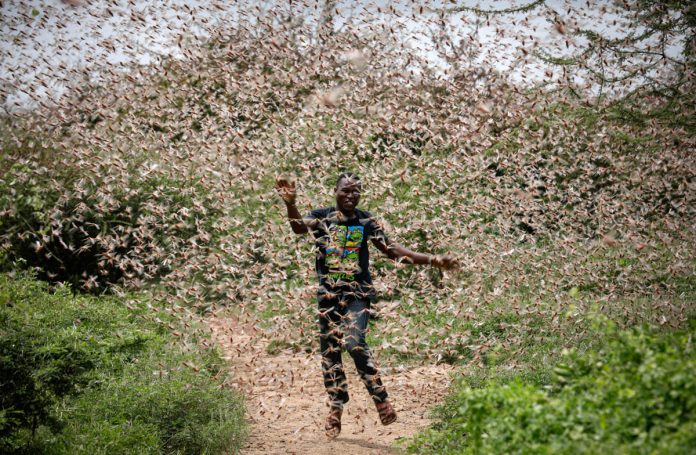
East African economies are already suffering from the worst infestation of desert locusts in 70 years, and the coronavirus is adding pepper to fresh wounds.
The region was already looking to a perfect economic 2020 prior to the locust outbreak – which threatens the food security and livelihoods of 25 million people and has required emergency funding of its own from the UN and international governments.
The UN Food and Agriculture Organisation (FAO) has warned that the “unprecedented” situation remains “extremely alarming,” especially in Kenya, Ethiopia and Somalia where widespread breeding is in progress and new swarms are starting to form.
The UN estimates that conducive breeding conditions could see the locusts multiply by 400 times this year, decimating crops in a region which relies on agriculture for roughly one-third of its gross domestic product (GDP) and more than 65% of its employment.
Now, a combination of trade and production shocks resulting from the coronavirus outbreak, as well as the economic and medical challenges of trying to combat the pandemic itself, will likely compound these problems.





